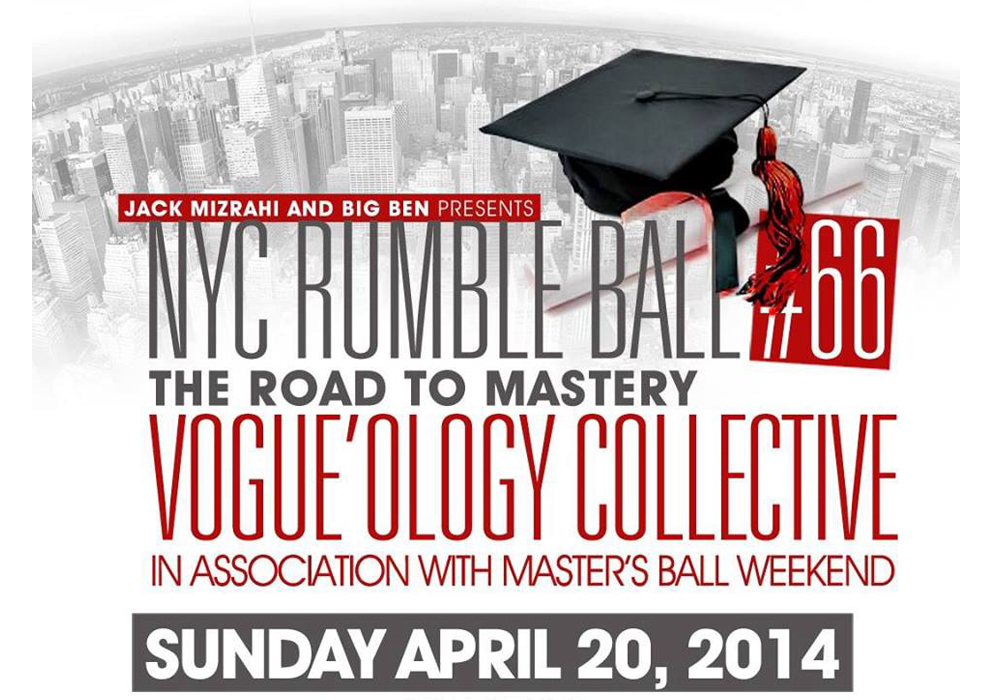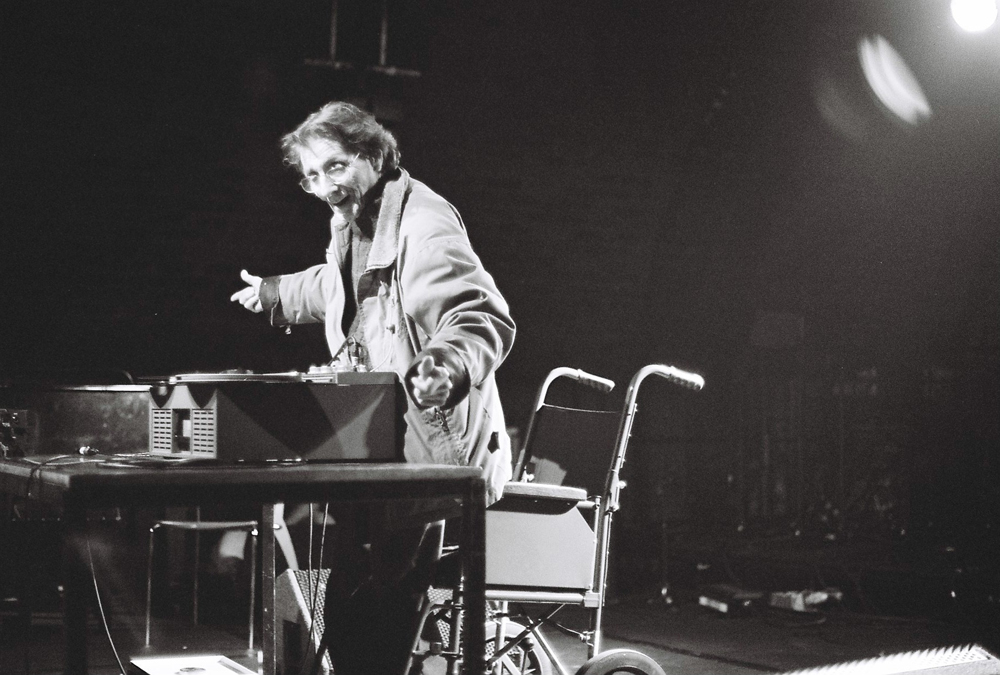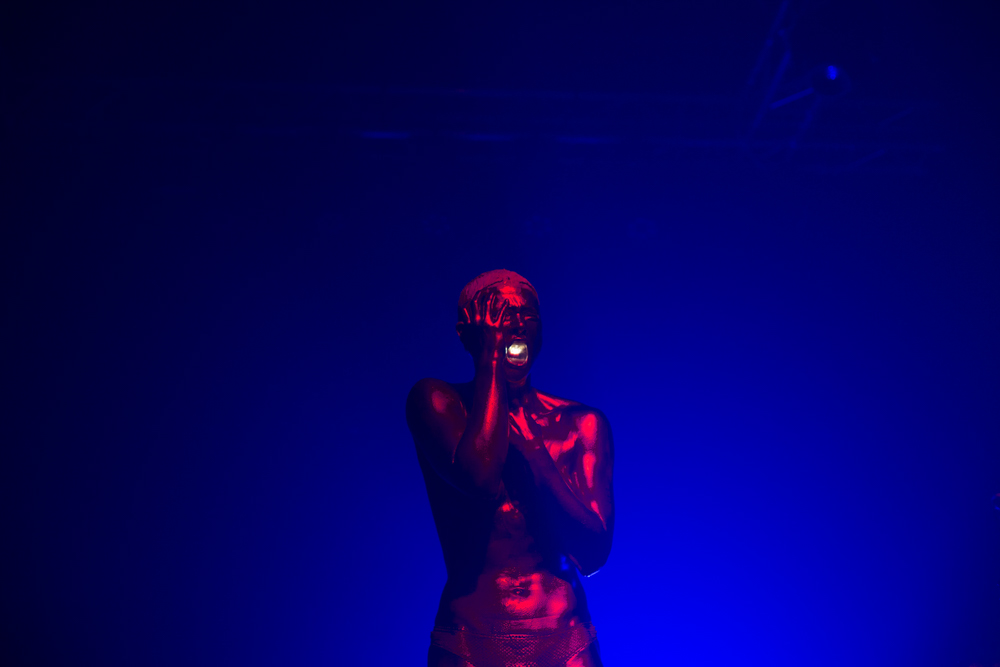
The Road to Mastery Rumble Ball
Various Artists
This mini, late-night ball will include categories inspired by the events earlier in the weekend.
Arika have been creating events since 2001. The Archive is space to share the documentation of our work, over 600 events from the past 20 years. Browse the archive by event, artists and collections, explore using theme pairs, or use the index for a comprehensive overview.

This mini, late-night ball will include categories inspired by the events earlier in the weekend.

Renouncing the bind of the written word, Chopin’s sound poetry is a magical evocation of the pure powers of the voices, stripped bare of language.

All ticket income goes directly to We Will Rise – a group of migrants, refugees, asylum seekers and their allies who have come together to End Immigration Detention in the UK.

Simon Morris is joined by Nick Thurston as they attempt to read aloud whilst peddling on exercise bikes.

Haino exceeds expectation with a 4 hour solo performance on a collection of more than forty instruments from all over the world.

Can a musician create a sonic photograph; something with a depth of field, where you can hear sounds and their interconnections, much as you see objects and their relationships in a photo? Could a filmmaker use musical concepts to represent landscape?

No Wave, damaged garage jams and crazed instant vocal shrieks.